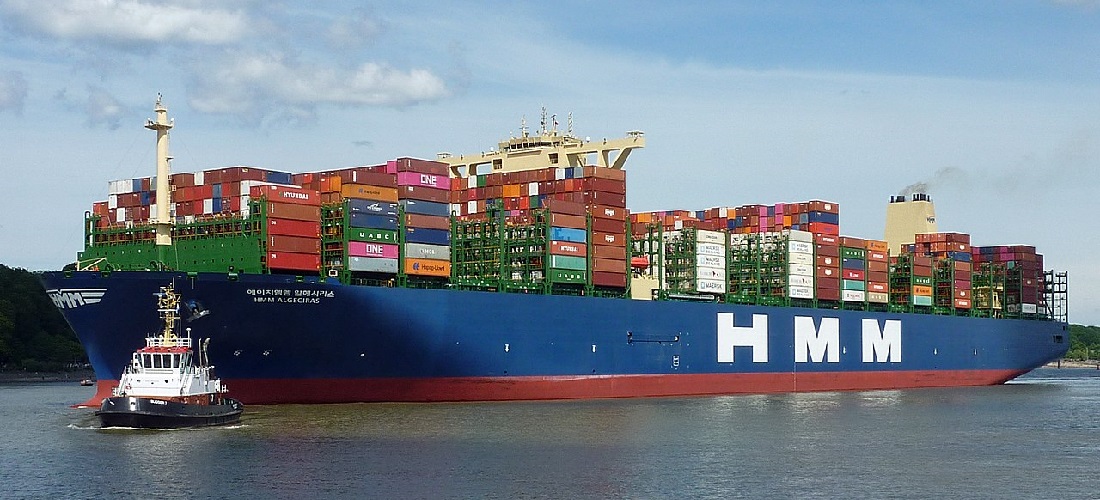
HMM to sharply expand container ship fleet by 2030
Apr, 16, 2024 Posted by Gabriel MalheirosWeek 202416
HMM Co., South Korea’s sea flag carrier, on Monday (April 15) unveiled a plan to sharply expand the fleet of container and bulk carriers by 2030 to strengthen its global competitiveness, although a plunge in freight rates and a slowdown in major economies paint a grim picture for the shipping industry.
The company, a majority owned by Korea Development Bank (KDB) and Korea Ocean Business Corp. (KOB), plans to increase its cargo capacity to 150 twenty-foot equivalent unit (TEU) by 2030 from the current 92 TEU.
One TEU equals one 20-feet container. The 150 TEU is equivalent to the combined load capacity of 130 container ships. The 92 TEU is the maximum cargo volume of 84 container carriers.
For bulk carriers, HMM plans to nearly double its cargo capacity to 12.28 million deadweight tonnage (DWT), equivalent to 110 vessels by 2030.
That compares to the current 6.3 million DWT, or 36 ships. DWT is a measure of the weight a ship can carry.
HMM will unveil details about the mid-term growth plan within the first half of this year. It holds a mere 2.7% share of the global container shipping market, according to the Ministry of Oceans and Fisheries.
The announcement came after its two largest shareholders’ attempt to sell a majority of HMM to South Korea’s leading poultry processor Harim Co. in a $5 billion deal collapsed in February.
The global shipping industry suffered a plunge in freight rates in 2023. The rates have returned to pre-pandemic levels due to the protracted economic slowdown and deliveries of new large-size container ships.
The Shanghai Containerized Freight Index, a benchmark index, plummeted to 1,006 in 2023, compared to 3,410 in 2022 and 3,792 in 2021. On April 3, it was quoted at 1,745.
Further, Asian freight cargo carriers are grappling with the world’s leading shipping companies’ departure from THE Alliance to establish a new alliance among western carriers in February 2025.
“The low freight rate environment is expected to continue due to the increased supply of large-scale container ships and economic uncertainties in the aftermath of regional conflicts in the world,” the Ministry of Oceans and Fisheries said in a statement released on Monday.
To comply with the global environmental standards, HMM is also considering achieving zero emissions to 2045, five years ahead of its original plan. To do so, it will improve energy efficiency, build eco-friendly vessels and secure low-emission fuels.
The ministry said that the Korea Ocean Business will inject fresh capital into domestic shipping firms by acquiring their green bonds.
The state-run agency will also offer new loans to Korean shippers with high environmental, social and governance ratings at lower interest rates than the market average.
-
Ores
Apr, 15, 2019
0
Brazil’s steel industry faces crisis due to Vale’s cuts
-
Other Logistics
Oct, 04, 2021
0
Rumo opens train filling station in Araraquara (SP)
-
Aug, 24, 2022
0
Brazil ships 128.548 thousand tonnes of beef in August
-
Grains
Apr, 17, 2023
0
Brazil wheat crop seen at record, yet below domestic demand -StoneX

